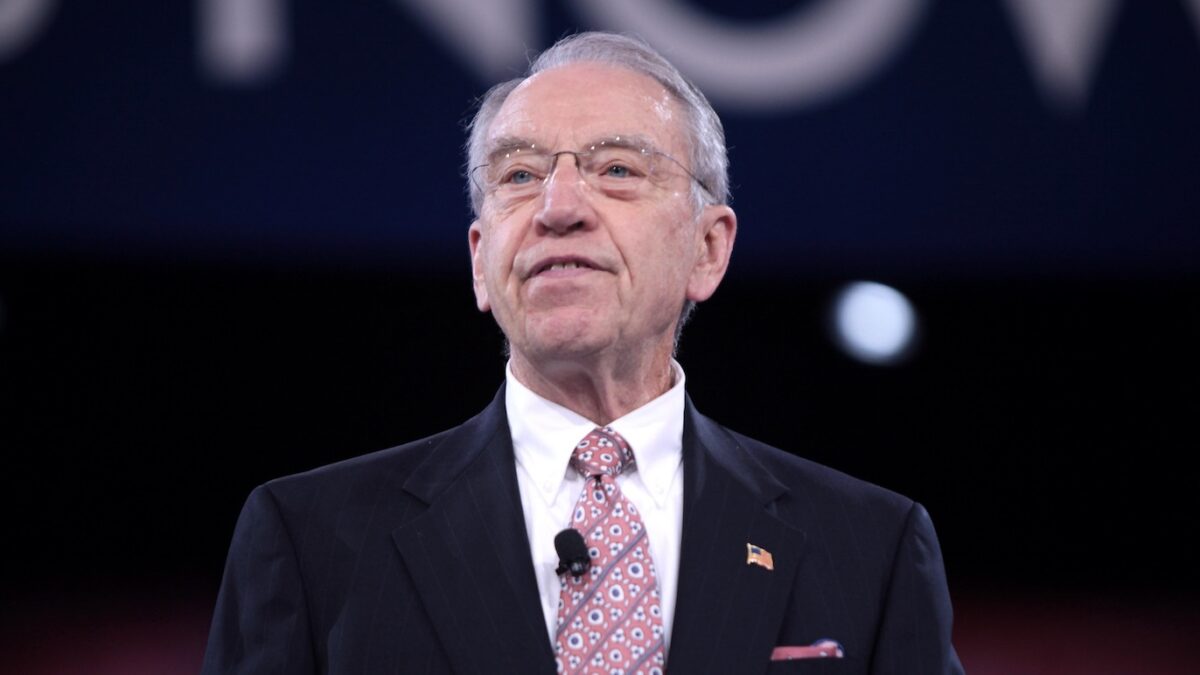
Peter Strzok has finally joined James Comey and Andrew McCabe in the ranks of fired FBI officials. Yet there’s likely more housekeeping to do at the federal law enforcement agency that spearheaded the investigation into the Trump campaign. A series of notes, emails, and text messages published in The Hill last week between former associate deputy attorney general Bruce Ohr and Trump dossier author Christopher Steele suggest as much.
The first suggestive detail appears in notes Ohr took to document a Nov. 21, 2016 meeting he had with Strzok, then a high-ranking FBI agent, and two other agents. One of those was then-FBI attorney Lisa Page, and the other is unnamed.
The Hill’s John Solomon reported Ohr’s notes indicate FBI officials told him in the meeting they “may go back to Chris,” apparently in reference to Steele, whom they had terminated as a source 20 days prior for leaking word of the investigation to the press. The day after this meeting, the FBI officially interviewed Ohr for the first of a dozen times, and Ohr relayed to the FBI the allegations of dirt Steele had compiled on the Trump campaign.
Ohr’s notes from his meeting suggest the FBI was using Ohr as a conduit to work around Steele’s termination as a source. This timing and number of interviews suggest the third unnamed agent had worked with Strzok and Page to devise a way to obtain intel from Steele, despite the fact the FBI had just ordered him not to obtain “any intelligence whatsoever on behalf of the FBI.”
A second exchange highlighted in Solomon’s reporting likewise indicates that the FBI employed additional agents who were malleable to working behind the scenes with Steele after he was terminated as a source. Steele texted Ohr to see if he was “OK” after Trump fired Yates. “If you end up out … I really need another (Bureau?) contact point/number who is briefed,” Steele stressed in the texts. Who were these other bureau people “briefed” on the situation whom Steele could trust if Ohr became a persona non grata?
In yet another exchange, on Aug. 8, 2017, Steele reached out to Ohr, asking for his help in accelerating his “reengagement with the Bureau and [Special Counsel Robert] Mueller.” From Steele’s frustration over the delay, it appears his efforts to return as a source for the FBI had been ongoing for some time. Ohr agreed to reach out to his contacts on Steele’s behalf, and Steele noted he was doing so as well.
Who were these contacts? Were they working with Mueller, as Strzok and Page had been before being removed once they were outed for their anti-Trump bias? Was Mueller aware of Steele’s attempts to reengage with the FBI? And had Mueller — who served as FBI director when Steele worked as a source on the FBI’s investigation of corruption at the international soccer body, FIFA — been involved in Steele’s efforts?
It looks like some major housekeeping is in order at the FBI, beyond the high-profile firings of Comey, McCabe, and now Strzok. Some of this happened when officials closely involved in the Hillary Clinton email investigation and Russia investigations placed themselves on the curb.
James Rybicki resigned as Comey’s chief of staff in January 2018, for example. The FBI downplayed Rybicki’s departure, but it’s likely related, at least in part, to scrutiny over his involvement “in the drafting of Comey’s infamous statement exonerating Clinton in the email investigation before interviewing key witnesses, including Clinton herself.”
Then in May 2018, Strzok’s mistress and FBI lawyer Page resigned, as did James Baker, who had previously served as the general counsel for the FBI under Comey, before being reassigned and eventually leaving his post. But the housecleaning at the FBI shouldn’t stop here. The unjustified redactions lower-level staffers made to materials provided to congressional oversight bodies illustrate that the stench that has overtaken elements of the bureau may have drifted downhill too.
Republican Rep. Keith Rothfus made this point during the House Judiciary Committee’s questioning of Deputy Attorney General Rod Rosenstein last month. “We see things that are redacted that shouldn’t have been redacted,” Rothfus said, adding that when things that are redacted to protect somebody at the FBI that shouldn’t have been, “it just adds to our skepticism.”
Rosenstein told the House Judiciary Committee that he had taken appropriate steps to remedy the problems whenever they were brought to his attention. The problem is, we don’t know what we don’t know. And neither does Rosenstein.
After all, Rosenstein’s own deputy, Ohr, was running documents and messages from Steele to the FBI for months before anyone in the Trump DOJ learned of his role. And Strzok and Page served on Mueller’s team for some time without anyone being the wiser.
Addressing the problems only when they are brought to the attention of the DOJ leadership isn’t enough: The DOJ and FBI need to dig deeper and get serious about cleaning house, both for the sake of the country, and for the sake of the all the hardworking and honest men and women at the FBI.









